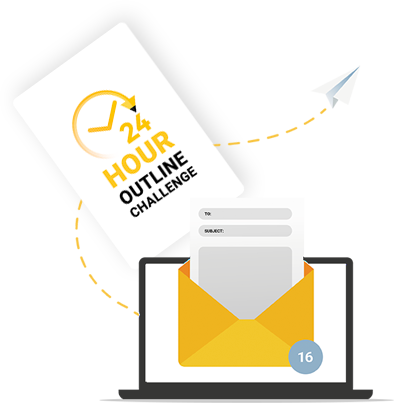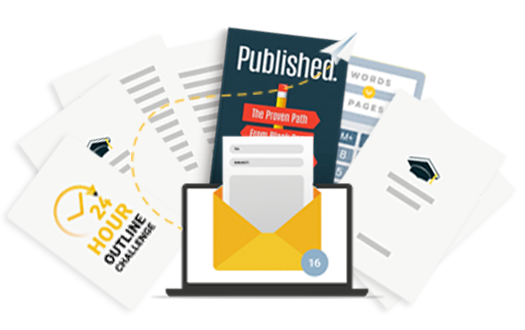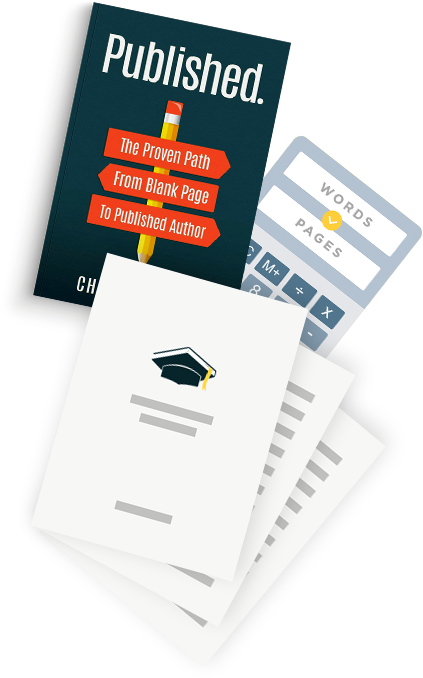Have you ever been in an argument with someone who said “Don’t you take that tone with me?” You might have known what they meant, or you might have sworn up and down that you had no idea what they were talking about, since you didn’t mean to “take a tone.” Today we’re going to make sure that your writing offers tone words where you want them, and you can identify and fix them where you don’t want them.
You probably used tone words, whether you meant to or not. When you’re on the defensive, you pick words accordingly, and that can often sound aggressive if you’re in a fight.
But tone words aren’t exclusive to fights! We use tone words all the time, especially when we’re writing.
The tone of a piece is going to massively impact the meaning of a piece, and it’ll have a huge effect on the reader’s experience with it, too.
So what are tone words? What’s tone, for that matter?
In this article, we’ll take a look at what tone is when it comes to literature, discuss some different types of tone, and give you some tone words you can use in your own writing.
Table of Contents

What is tone in writing?
Tone in writing is the way a writer communicates attitude to the reader. It’s the specific words they pick, the connotations those words carry, and how they relate to the subject matter to create a certain ambience or vibe.
Tone isn’t the same thing as voice. Voice is the way the writer writes–it has more to do with their syntax, structure, and story flow. Voice combined with tone gives a writer a certain style.
Think of it like this: a person’s speaking voice is unique and individual to them. The voice, on its own, doesn’t really communicate anything. The words you pick and the way that you say them are your tone.
When your parents say “don’t take that tone with me!,” they’re not talking about your vocal chords–they’re talking about the words you’ve said and how you’ve said them.
A writer is going to have their own way of putting words down on the page, and they can deliberately set certain tones based on how they describe their subjects.
What are Different Types of Tone?
So: if tone is the way we convey attitude to the reader, then how many different types of tone is there?
It’s sort of like asking how many different feelings we can feel. There are countless different tones to take, since there are tons of different ways we can twist the scenes we write. Let’s look at a concrete example.
I want to describe a sunrise, and I want the passage to feel happy and carefree. To do this, I might say something like this:
“The sun rose in the sky a bright, cheerful yellow. Chirping birds danced in the trees, and I smelled fresh, hot coffee in my kitchen.”
In this example, I’ve used the words ‘bright,’ ‘cheerful,’ ‘danced,’ and ‘fresh.’ These all evoke a happy, cheerful image–the tone we’ve established here could be described as any synonym of happy.
However, maybe I don’t want the sunrise to be happy. Maybe I want it to be depressing and dark. That might go more like this:
“The sun crept up, casting an awful orange glow. Birds shrieked outside my window. In the kitchen, putrid coffee dripped into a chipped mug.”
See what I mean? We’ve got words like “crept,” “awful,” “shrieked,” and “putrid.” This gives a much different attitude than our first example. We might say this tone is depressed, miserable, or pessimistic.
But tone isn’t always happy or sad. There’s lots of nuance to human emotion, and we can convey that in our writing! We can make our tone anxious by describing things accordingly, or we can make it scary, depending on the details we use. Is it a bloody red sun, or a bright happy morning?
It’s also worth noting that all writing takes a tone, whether you want it to or not.
Let’s say we wanted to take all the adjectives out of that sunrise and make it as toneless as possible:
“The sun rose at eight a.m. Several birds chirped in the trees by the apartment complex. In the kitchen, coffee was brewing.”
A lack of adjectives also matters. We might describe this tone as dull, drab, or bare. Think of it like this: writing is like preparing a meal. The spices you use impact the way the dish turns out. If you cook it without spices, you’ve just made a meal without flavor, and that’s not what you want in fiction.
Examples of Tone Words to Use in Writing
Now you know what tone is, and you know how we can manipulate it to get our desired attitude across to the readers. I’ve got a set of strong tone words you can use in your work to establish tone. I’ve even grouped them based on the type of tone they convey! Most of these are adjectives, but some of them are strong action verbs–all of them get across the vibe you want. You’re welcome!
Happy Tone Words
- Delightful
- Cheerful
- Happy
- Elated
- Joyous
- Bright
- Smiling
- Jubilant
- Dancing
- Frolicking
- Playful
- pleasant
- Sing-song
- Magical
- Sparkling
- Wondrous
- Warm
- Safe
- Relaxing
- Excited
- Amped
- Carefree
- Easygoing
- Laid-back
- Lackadaisical
Sad Tone Words
- Depressed
- Dreary
- Rainy
- Downcast
- Upset
- Crying
- Weeping
- Howling
- Grieving
- Hopeless
- Lost
- Abandoned
- Heavy
- Weary
- Abused
- Directionless
- Exhausted
- Misunderstood
- Useless
- Run-down
- Battered
- Weathered
- Devastated
- Defeated
- Withdrawn
- recluse
- Secluded
- Lonesome
- lonely
- Melancholy
- Aimless
- Pointless
- Aching
- Wrecked
- Longing
- Regretful
Angry Tone Words
- Exasperated
- Hissing
- Shouting
- Stomp
- Shaking
- Furious
- Frustrated
- Exasperated
- Livid
- Violent
- Rage
- Vicious
- Bloodthirsty
- Stern
- Calculating
- Cold
- Ruthless
- Predatory
- Punching
- Slamming
- Kicking
- Unamused
- Fuming
- Steaming
- Hurling
- Fight
Anxious Tone Words
- Nervous
- Scattered
- Absent-minded
- Forgetful
- Worried
- Fidgeting
- Overcome
- Overwhelmed
- Distracted
- Scrambled
- Fretful
- Concerned
- Preoccupied
- Panicked
- Stressful
- Frantic
Romantic Tone Words
- Lovingly
- Soft
- Handsome
- Beautiful
- Caress
- Gentle
- Swoon
- Flirty
- Sweet
- Sensual
- Cheeky
- Coy
- Teasing
- Tender
- Desperate
Scary Tone Words
- Tense
- Creepy
- Crawling
- Shock
- Shatter
- Bloody
- Shaken
- Horrified
- Appalled
- Monstrous
- Unholy
- Ghastly
- Unnerving
- Eerie
- Unseemly
- Unsightly
- Terrifying
- Terrible
- Dread
- Scary
- Spooky
- Shiver
- Ghostly
- Hopeless
Surprise Tone Words
- Agawk
- Aghast
- Unbelievable
- Shocking
- Gob-smacked
- Thrilled
- Amazed
- Awed
- Stupified
- Overrun
- Sudden
- Unexpected
- Bewildered
Need a little help figuring out how to write a book? We can help!
Fiction or Non-Fiction, this kit is loaded with resources for both!



